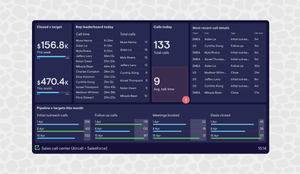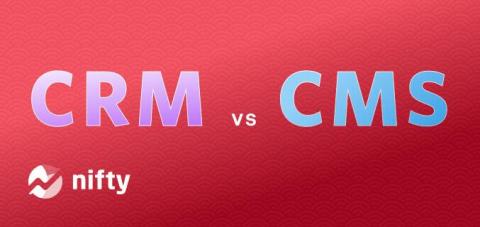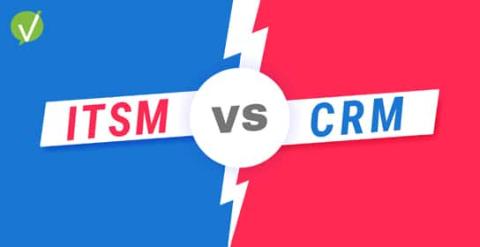Teams | Collaboration | Customer Service | Project Management
CRM
How To Implement & Utilize A School CRM: A Guide for Educational Leaders
Here's Another Way to Integrate Aircall and Salesforce
9 Best Salesforce Dashboards & Reporting Tools for 2024
Salesforce marketing teams use automation to simplify processes and fuel productivity
Workflows help marketers to create and launch campaigns faster.
CRM vs CMS: Which One Is Right for You (& When)?
Managers often view CRM and CMS as optional or opposing tools. Granted, both CRM vs CMS tools serve differing purposes; however, using them simultaneously can boost your customer data management efforts through the roof. In this guide, we will deep-dive into understanding the key differences between CRM vs CMS and learn when you should use which tool. Let’s go!
ITSM vs CRM: Understanding the Key Differences
When it comes to managing your business needs, choosing the right software solution is crucial. ITSM and CRM are two important tools that can help streamline your day-to-day activities, but they have distinct differences. ITSM, or IT Service Management, focuses on managing and delivering IT services to meet the needs of an organization. On the other hand, CRM, or Customer Relationship Management, helps businesses manage interactions with their customers.
SaaS CRM Basics for Entry-Level Project Managers
SaaS is gaining popularity as a way for businesses to save money on several services. Companies used to buy software and install it on their computers, or they would make their own. As a result, they needed to invest in infrastructure and staff to maintain these systems operational. Under the SaaS approach, you are not responsible for the software. You are nothing more than a user. The software will be accessible through internet interfaces and, in general, mobile applications.
Can Zendesk be used as a CRM?
Choosing the right software can be a nightmare. With so many acronyms, options, and features, making the right choice is no mean feat. You might even be left scratching your head as terms like CRM and SaaS are thrown around without any explanation. But fear not. If you’re wondering whether you can use Zendesk as a CRM, then you’ve come to the right place.
How to use CRM data to create amazing customer experiences
We’ve all heard the adage: knowledge is power. But in business, data is power and understanding your customers’ needs, preferences, and behaviour is key to both creating an amazing customer experience and ensuring business success. It’s no surprise then that Salesforce revealed 90 per cent of executives think a single source of truth about their customers would be valuable—even though only 32 per cent have this right now.











